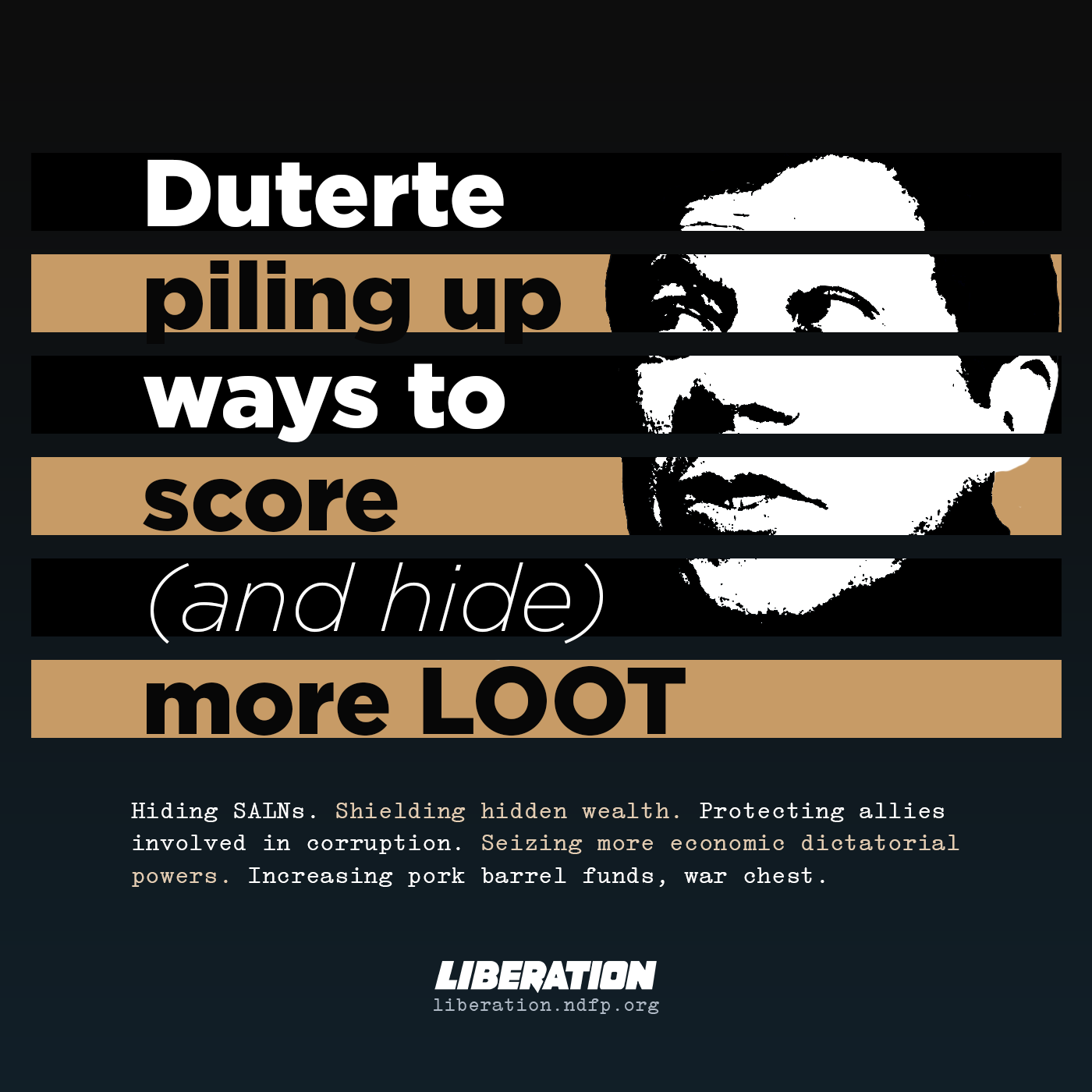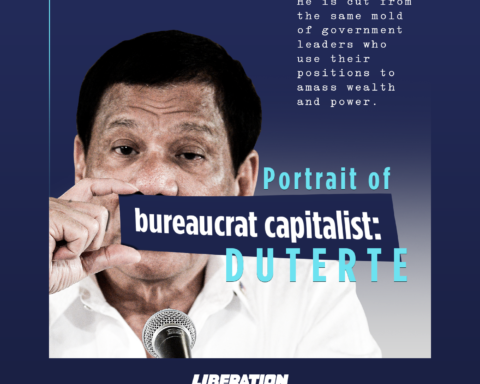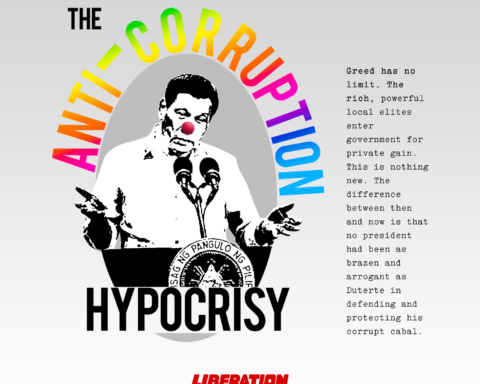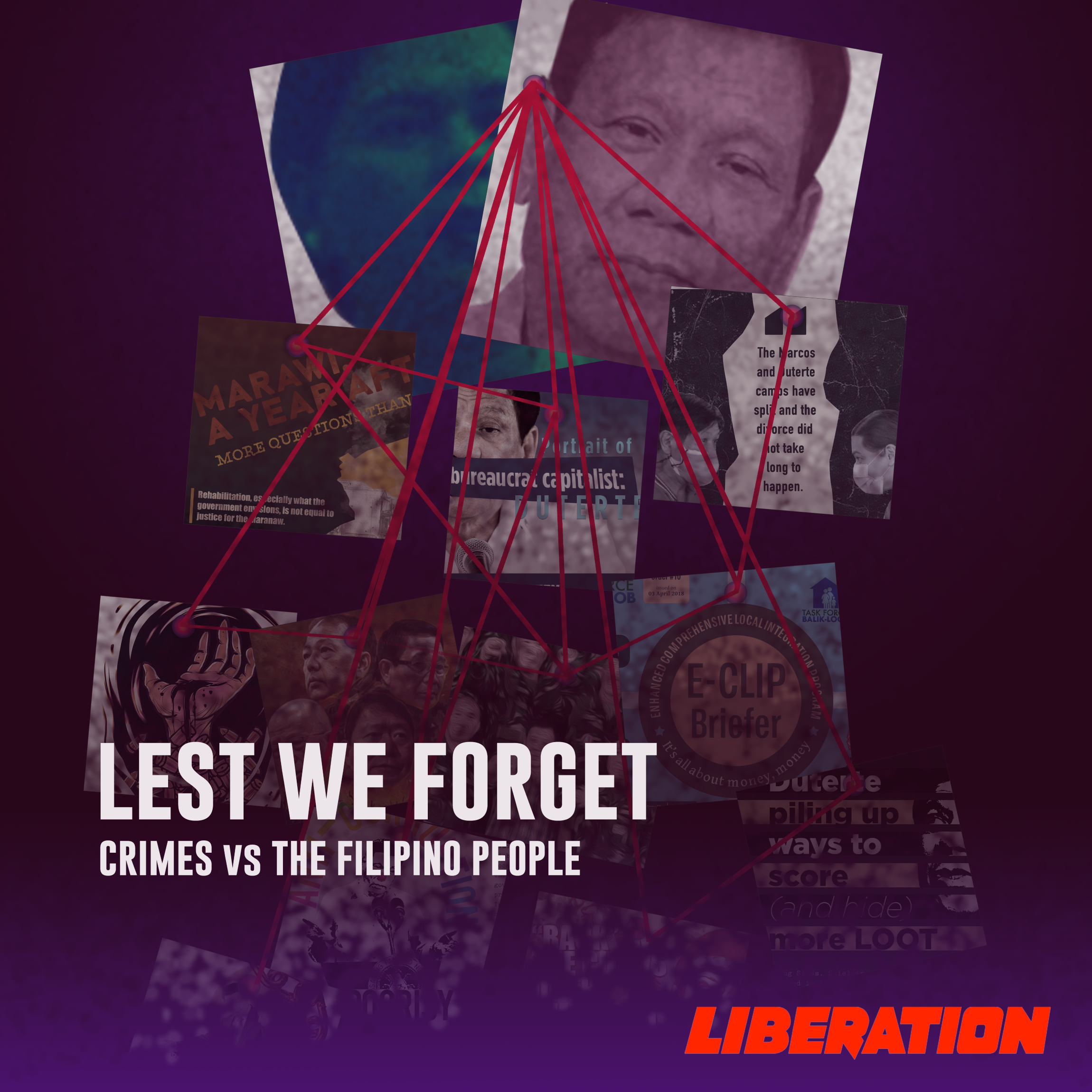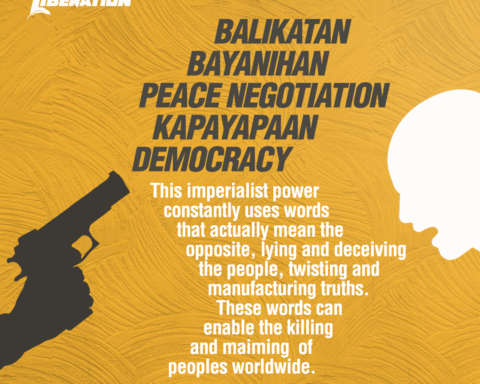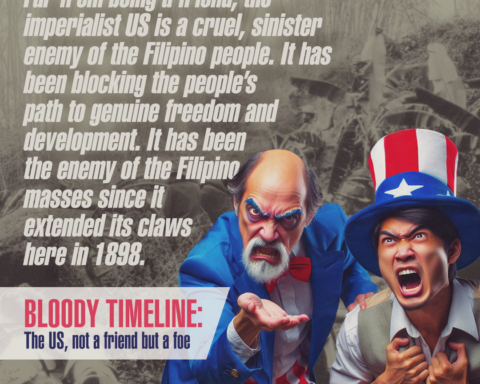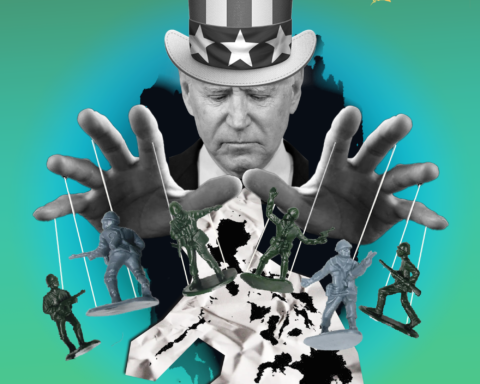President Rodrigo Duterte promised to reduce corruption to the barest minimum under his watch. But as he approaches the last months of his term, he is not only expanding ways and means to intensify corruption and centralize the power of bureaucratic looting at the Office of the President but also promoting various ways of sabotaging efforts previously pushed by the people for transparency and accountability.
Hiding SALNs
The Ombudsman, with its Memorandum Circular 1, has blocked public access as well as public inspection at reasonable hours of the Statement of Assets, Liabilities and Networth (SALN), for the first time since the law mandating public disclosure of these records was passed in 1989. It blocked even the journalists. Duterte is the first president to have broken the annual tradition imposed by the law for government officials to disclose their wealth with or without media or public request. The last Duterte SALN made available to the public was in 2017. The Ombudsman is also proposing to do away with lifestyle checks. During the 2021 budget hearing, Ombudsman Samuel Martires said his office had stopped lifestyle checks on officials saying the RA 6713 set “unclear” standards. Martires is a two-time Duterte appointee.
Aside from The Ombudsman, trends under Duterte showed the House of Representatives, Senate and the Supreme Court keep SALNs a secret.
Shielding hidden wealth.
The Ombudsman is also rolling back gains from the Ill-Gotten Wealth Law (RA 1379) which put the burden of proof on government officials to show that wealth and assets not commensurate to visible sources of income were lawful.
Protecting allies involved in corruption.
Duterte, for all his rants and grunts against corruption, has actually protected his allies who were accused of looting the nation’s coffers. Worse, some were “recycled” by reassigning them in another government agency or some were even promoted. Those who were fired were not charged in court. Among his favourites were former military officers Isidro Lapeña, Allen Capuyan and Nicanor Faeldon. Both Lapeña and Faeldon were involved in a corruption and smuggling scandal at the Bureau of Customs but were only reappointed to several government posts after. Ex-colonel Capuyan was assistant general manager for the Manila International Airport Authority who was linked to the smuggling of ₱6.4 billion worth of shabu from China in 2017. Today Capuyan concurrently heads the National Commission on Indigenous Peoples (NCIP) and the secretariat of the National Task Force to End Local Communist Armed Conflict (NTF-ELCAC).
Seizing more economic dictatorial powers.
Bills granting Duterte economic dictatorial powers are being railroaded in Congress. House Bill 7884 was passed on 2nd reading in mid- October 2020, following similar railroading of a counterpart bill in the Senate. Certified urgent by Duterte, the proposed law gave the president authority to override all existing processes and regulations that govern business permits and licenses. It covers all agencies of the executive departments, bureaus, offices, commissions, boards, councils and even government owned- and controlled corporations.
Increasing pork barrel funds, war chest.
The budget for health, education and social services barely increased despite the gargantuan need, but the Duterte administration increased the already huge funding for defense, surveillance and “infrastructure pork programs.” Its budget allocation revealed the armed forces are more hellbent to wage war against the people than project a minimum credible defense posture against external forces. The ground troops of the Philippine Army, which mainly make up the government’s attack force on armed and unarmed revolutionaries, got an additional P800 million this year in the budget. The Air Force and Navy got only P400 million each. The National Task Force to End Local Communist Armed Conflict (NTF-ELCAC) got the P19-billion it had proposed. Plus, it will manage the “Barangay Development Project” of the military which, like pork barrel, is at the discretion of NTF-ELCAC and local governments. As the Commission on Audit (COA) has lamented, it is unable to audit the president’s intelligence, confidential, and NTF-ELCAC funds.###

